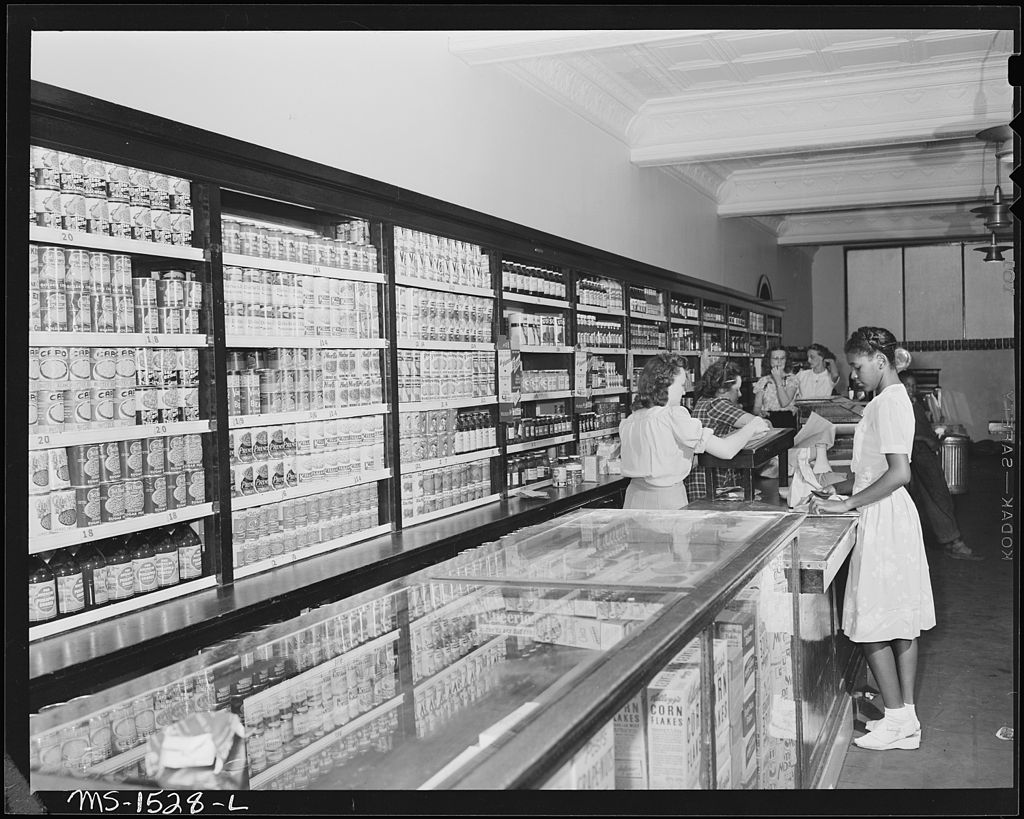
U.S. Coal and Coke Company Store in 1946, Gary, West Virginia. U.S. National Archives and Records Administration.
• “Parsed from the Greek, necronym literally translates as ‘death name.’ It usually means a name shared with a dead sibling. Until the late nineteenth century, necronyms were not uncommon among Americans and Europeans. If a child died in infancy, his or her name was often given to the next child, a natural consequence of high birth rates and high infant mortality rates.” A literary (and personal) history of the necronym. (The Believer)
• “During the boom in textile, coal, steel and other industries, workers often earned what’s called scrip instead of real money: a kind of credit they couldn’t spend anywhere but the company store, where prices were often higher than elsewhere. Companies in these places often required that workers live in bare-bones company housing and send their kids to company-built schools, where the boss’s perspective was king.” A history of the American company town. (Smithsonian)
• “The truth is that even the publishing industry and the media are convinced of this commonplace; both tend to shut women who write away in a literary gynaeceum. There are good women writers, not-so-good ones, and some great ones, but they all exist within the area reserved for the female sex, they must only address certain themes and in certain tones that the male tradition considers suitable for the female gender.” Mysterious Italian novelist Elena Ferrante addresses speculation that she might secretly be a man. (The Guardian)
• “How and why this vogue for the nose arose within Russian letters—what critics and scholars have called a ‘nosology’—are questions of lasting interest.” (LitHub)
• Paul Revere left all his grandchildren (save one, who got only a single dollar) tidy sums in his will. (Pictorial)
• “How would I know when the acid had eaten through too much of the gloves? I would feel, I was told, a slippery sensation, before the burning began. And that was indeed the case. My father put a stop to my working there when he heard, with some disbelief, what I’d been doing.” For Labor Day, T.C. Boyle and Jim Shepard tell stories about factory work. (Paris Review Daily)